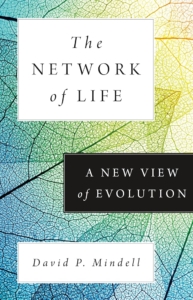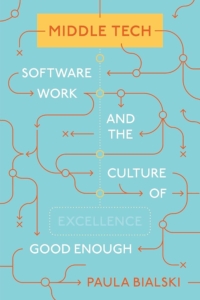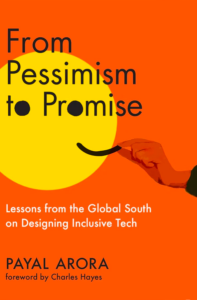“The Network of Life: A New View of Evolution” with Professor David Mindell
For a long time, the prevailing perspective on evolution has been that it follows a vertical pathway, where genetic information is passed down from one generation to the next in a linear fashion, resembling a “tree of life.” This classical view suggests that species evolve through a process of divergence from common ancestors, resulting in a branching tree structure that traces the lineage of life over time. In his new book “The Network of Life” Professor David Mindell emphasises the need to update this understanding, and explains that evolution functions more like a distributed, decentralised network. In this framework, there are possibilities for horizontal evolution, where genetic material is shared across species in a more fluid and interconnected manner. The book looks at the forces behind horizontal evolution, such as interbreeding, genetic recombination, merging of species, horizontal gene transfer, and coevolution. The network view of evolution leads to a new symbiotic theory of health. It suggests that the future well-being of humans, other species, and our environment relies on how life evolves and adapts within this interconnected web. In this episode of Bridging the Gaps I speak with Professor David Mindell.
Professor David Mindel is a senior researcher of Zoology at the University of California, Berkeley. He is a former professor of ecology and evolutionary biology at the University of Michigan, director of the University of Michigan Museum of Zoology, and Dean of Science at the California Academy of Sciences.
We begin our discussion by revisiting the traditional concept of vertical evolution, where life is represented as a branching tree. This model shows how species evolve through a series of splits, tracing their lineage back to common ancestors. We explore how this classical framework explains the development of species over time and then shift to discussing two core ideas in evolutionary theory: natural selection and genetic mutation. For much of history, evolution has been viewed primarily through the lens of vertical inheritance, which emphasises the transmission of traits from parent to offspring.
One reason for this focus on vertical evolution is that early evolutionary studies, including Darwin’s, were centred around natural selection, with limited knowledge about genetic mutations. At that time, the role of genetic mutations was not well understood. Today, we know they are essential drivers of evolution. We examine how this early gap in understanding may have shaped the preference for the vertical model of evolution and consider whether it limited perspectives on how species adapt over time.
Next, we delve into the concept of horizontal evolution, which presents a shift from the traditional view. In “The Network of Life”, Professor David Mindell explores evidence suggesting that horizontal evolution—where genes are shared across species—has been happening since life began on Earth. To set the stage, I ask him to outline what we currently know about the origins of life. We also discuss the intriguing role of viruses, which can transfer genetic material between species and influence evolutionary paths.
We then dive into the key discoveries that support and solidify the concept of horizontal evolution. Processes such as hybridization, species merging, and horizontal gene transfer provide strong evidence for this interconnected view of life. Mindell highlights the contributions of prominent scientists and pivotal studies that have reshaped our understanding of evolution.
If we update the current evolutionary framework to include horizontal evolution, what new questions might this approach help us answer? We discuss the significance of adopting this broader perspective and how it could refine our understanding of life’s history.
Finally, we explore the exciting possibilities that arise from this new understanding. By embracing the network view of evolution, we can enhance research on synthetic life, support assisted evolution to help species adapt to climate change, and revolutionise our approaches to biotechnology, medicine, and environmental sustainability. This has been an insightful and enriching conversation, shedding light on the profound impact of horizontal evolution on our world.
Complement this discussion with “Zero to Birth: How the Human Brain Is Built” with Professor William Harris and then listen to “The Exquisite Machine: The New Science of the Heart” with Professor Sian Harding




Connect With Us